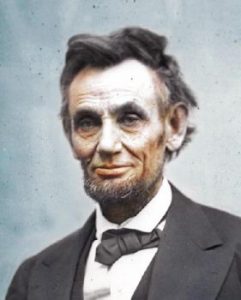
His fact: God could have made a better looking man.
Blessed are the meek, for they will inherit the earth (Matthew 5:5).
Americans with modest means or better enjoy an unlimited array of dietary options. But this privilege comes at a price.
With freedom comes responsibility. When we don’t like what we see in the mirror or what the doctor reads in our blood labs, we feel guilty. Our choices come back to haunt us. If we lived in a village with access to little else than rice, fish, and mangoes, things would be less complicated. We would be less complicated.
As a college counselor, I work with some of the most beautiful people in the world every day, most of whom cannot accept their body shape. Well-meaning parents, grandparents, dates, and the advertising industry sting them with digs about pounds that come naturally from the high pressured, sedentary activity of study. Sometimes the same parties promote donuts, cupcakes, and syrupy custom coffees to take the edge off of organic chemistry.
Little wonder eating disorders flourish in these conditions. But for normal eaters, the struggle remains. To what extent do I hold myself responsible to manage my body shape and general health? And to what extent do I accept my fact? “My fact” may be a supermodel’s frame no matter how many donuts I eat. Or it may be a genetic predisposition to more fat cells and a plumper body no matter how many hours I spend in the gym or how diligently I eat kale.
Surprise! This is not a post about diet and weight. It is about your fact. Diet and weight struggles reflect the universal struggle between fact and responsibility. We walk a tightrope between possibilities and realities not just for culinary choices and eating habits, but for work, love, and leisure.
If you no longer have goals, if you just settle for the status quo and cruise on autopilot, you need to surrender to a purpose beyond yourself. But if you feel constantly dissatisfied with your place, company, and image in the mirror, dreams and ideals distract you from your fact.
In a discussion of accepting one’s fact, Howard Thurman paraphrased Abraham Lincoln speaking of himself: “God could have made a better looking man, he could have made a man with more gifts and more talents and more power, but he didn’t do it.” In Lincoln’s case, God could have made a happier man, less prone to sadness, but God didn’t. Yet, the world lives still with the fact of Abraham Lincoln, and 99% of us stand in awe before his memorial in Washington.
I am no Abraham Lincoln. Chances are you are not either. For sure, none of our presidential candidates are. But God gazes upon your fact with awe greater than yours before the Lincoln Memorial.
You are fearfully and wonderfully made (Psalm 139:4). Disappointment with your looks, job, or relationships distracts you from the fact which your distorted mirror cannot show. The clear, loving gaze of God sees you as you are. Do not avoid God for fear of what God will show you. Humbly ask, and you will receive just what you need, a better view than you ever imagined.

0 Comments